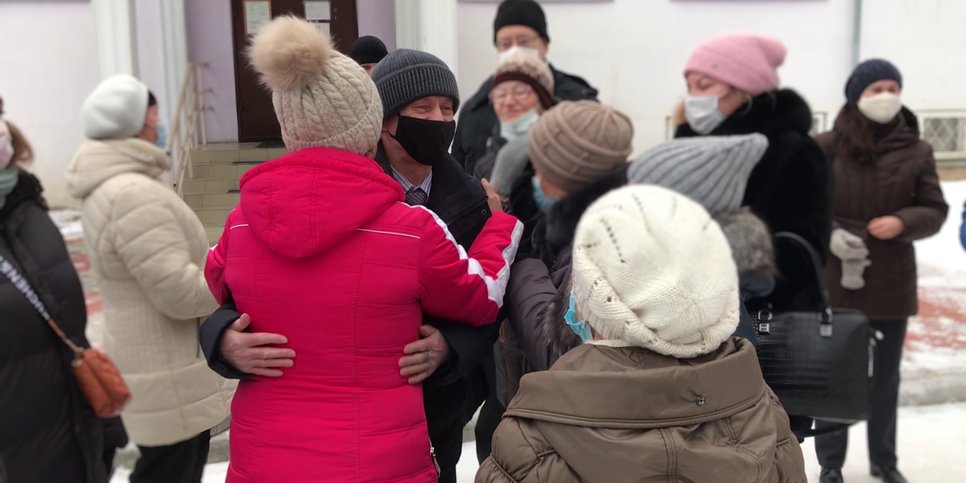Alexander Kabanov at the Zelenogorsk City Court. December 6, 2021
Alexander Kabanov at the Zelenogorsk City Court. December 6, 2021
Instead of a Verdict, Court Decided to Continue Hearings in the Case of the Believer Aleksandr Kabanov from Zelenogorsk
Krasnoyarsk TerritoryText updated on December 9, 2021.
On December 6, 2021, the judge of the Zelenogorsk City Court of the Krasnoyarsk Territory, instead of announcing the verdict to 61-year-old Jehovah's Witness Alexander Kabanov, left the deliberation room and decided to return to the stage of the judicial investigation, at which the case materials are examined and witnesses are heard. The next hearing is scheduled for December 24, 2021. Earlier information that the case had been returned to the prosecutor was not true.
In his last word before the court on December 1, Aleksandr Kabanov noted: “The laws of the Russian Federation are on my side. For example, there is Article 28 of the Constitution of the Russian Federation. It says: "Everyone is guaranteed freedom of conscience, freedom of religion, including the right to profess, individually or in groups, any religion or not to profess any religion, freely choose to have and spread religious and other beliefs and act in accordance with them." If I, as a citizen of the Russian Federation, have this right, I am under the protection of the highest law of the state, can I, without breaking the law, be called a criminal? "
Aleksandr worked for 12 years in a boiler room, now he works as a street cleaner. The case against him was opened by the Investigation Department for the Closed Administrative Territory of Zelenogorsk of the Main Investigative Directorate of the Investigative Committee of Russia for the Krasnoyarsk Territory and the Republic of Khakassia on December 26, 2019. On the same day, the security forces detained the believer right at work, brought him home to conduct a search, and then placed him in a temporary detention center. The grounds for the arrest were the "obvious traces of a crime" discovered during the search. At the same time, it was not specified which items indicated the guilt of Kabanov in the commission of a "grave crime."
The next day, despite the investigator's petition to place the believer in custody, the court decided not to choose any measure of restraint for Aleksandr.
The materials of the case, led by investigator Oleg Kolosov, are full of contradictions. Thus, the prosecution referred to the testimony of a secret witness. During interrogation, he admitted that he had not heard that the defendant incited religious discord, spoke negatively about non-Jehovah's Witnesses, encouraged the severing of family ties, and in any other way harmed society or the state.
In addition to Aleksandr Kabanov, the authorities in the Krasnoyarsk Territory are persecuting another 15 Jehovah's Witnesses simply because they profess an "unwanted" religion. Two of them - Andrey Stupnikov and Dmitriy Maslov - have already been sentenced: 6 years in prison and a fine of 450,000 rubles, respectively.
The Russian Presidential Council for the Development of Civil Society and Human Rights drew attention to the groundlessness of the criminal prosecution of Jehovah's Witnesses: “The decision [of the Supreme Court of the Russian Federation of April 20, 2017 – editorial comment] does not contain any conclusions about the prohibition of the religion of Jehovah's Witnesses as such. " According to the clarification of the Plenum of the Supreme Court of October 28, 2021, the divine services of Jehovah's Witnesses, their joint rituals and ceremonies do not in themselves constitute a crime under Art. 282.2 of the Criminal Code of the Russian Federation.

